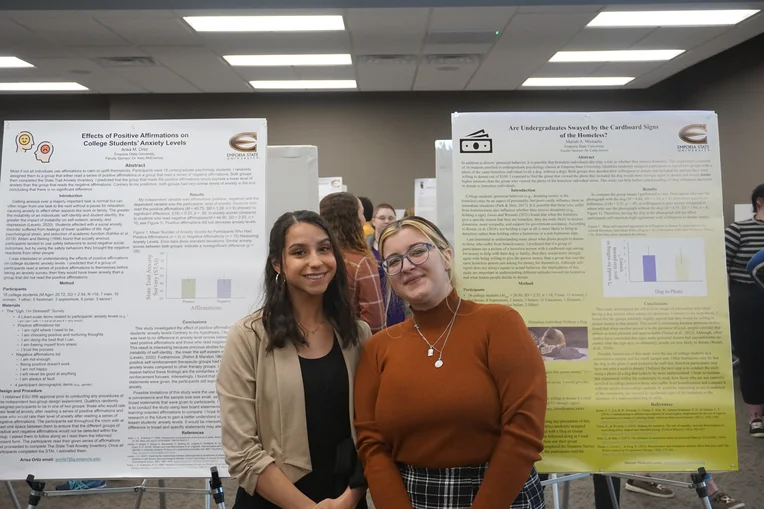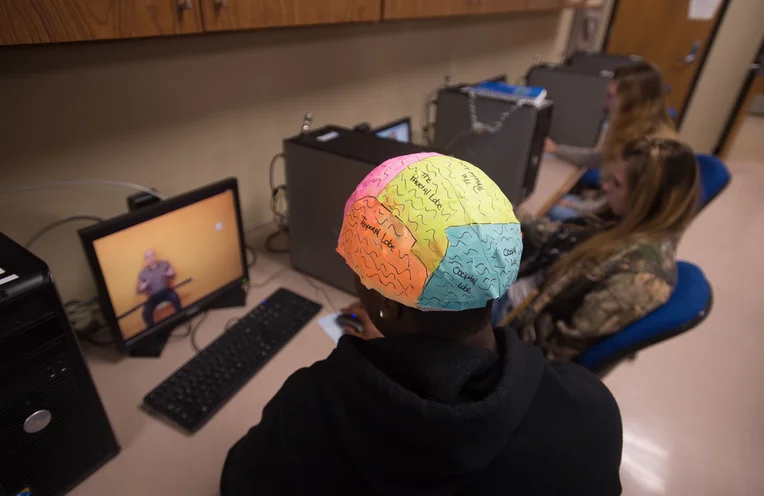Advanced Psychology Graduate Certificate
DO MORE WITH YOUR CAREER
The Advanced Psychology Certificate program is meant for teaching professionals in community colleges and secondary settings who teach college level courses and who need to meet the 18-hour coursework requirements to meet highly qualified requirements of the Higher Learning Commission.
Additional Information
- Admission Requirements
*Official transcripts from all colleges/universities attended
*Government-issued ID
Submitting Application Materials
The following items must be provided/completed at the time of application submission through the Application Portal:
*Unofficial bachelor's degree transcript
*Government-issued ID
Official transcripts
Students must submit official bachelor’s degree transcripts containing at least 60 credit hours of coursework and final grades. Any additional transcripts from college credit accumulated after the bachelor’s degree MUST be submitted if you will be using these credits for transfer credit or for last 60 GPA. Transcripts are considered official when they arrive in the Graduate Office in a sealed envelope from the issuing institution or are received through a secure electronic transcript service to gradinfo@emporia.edu.
If the transcripts need to be mailed, send to:
Emporia State University
Graduate School
Campus Box 4003
Emporia State University
1 Kellogg Circle
Emporia, KS 66801-5415
Required Courses and Descriptions (18 hrs)
- SD 550 Survey of Exceptionality (3 hrs)
This course provides information on the characteristics, legal, historical, and philosophical foundations of general, special and inclusive education. The teacher candidate will learn the historical and philosophical foundations of general, special, and inclusive education, the development and characteristics of all learners including those with disabilities, the impacts of individual differences on education, and the legal parameters appropriate for each learner's educational needs.
- PY 750 Advanced Educational Psychology (3 hrs)
This is a graduate seminar course covering advanced educational psychology theories and practices with emphasis on how they apply to inclusive school/classroom settings to support the needs of diverse learners. Topics to be covered include memory and learning, motivation in education, and differentiated instruction, as well as collaboration to support learners.
- IT 700 Foundations of Instructional Design and Technology (3 hrs)
This course is intended to provide students with a clear picture of the field of instructional design and technology, the trends and issues that have affected it in the past and present, and those trends and issues likely to affect it in the future.
*Or you can take IT 727.
- IT 727 Integrating Educational Technology Into Teaching (3 hrs)
This course is designed to enhance and extend the technology skills of practicing educators, apply those skills in innovative ways, and create lesson plans that support collaborative, project-based learning. It examines the theoretical and philosophical underpinnings required to transition to a technology-rich classroom. Practical ideas, suggestions and lesson plans to ensure successful technology integration will be provided.
*Or you can take IT 700.
- PY 811 Seminar in Human Growth/Development (3 hrs)
Consideration is given to individual development, adjustment to social patterns, and the significance of development for learning. Special problem areas from conception through adolescence are covered.
- PY 812 Foundations of Assessment in Special Education and Student Support (3 hrs)
The course provides familiarity with assessment principles in K-12 school settings, as undertaken to support students in general education as well as to determine needs and eligibility in special education and gifted. It covers various domains including intelligence/aptitude, achievement, language, social/behavioral, adaptive, motor, and general development. Understanding of test scores and their meaning, and selection of valid tools is reviewed. Multicultural and bias issues, and other factors which contribute to error in assessment are key components as well as ethics and legal obligations as relate to the assessment process. Tools such as norm-referenced tests, criterion- referenced tests, functional behavioral assessment, systematic observation, and informal/authentic assessment such as portfolios are included.
*Or you can take SD 820.
- SD 820 Assessment in Schools (3 hrs)
This course is a survey of the broad spectrum of psychological tests used in the assessment of human potential and functioning. The focus is on the nature, use, and interpretations of various methods of evaluation with specific reference to measurement in the areas of aptitude, achievement, interest, personality, and intelligence. Analyzing data and the interpretation of test results is a major emphasis.
*Or you can take PY 812.
- PY 860 Leading Processes to Meet Diverse Student Needs (3 hrs)
Principles, practices, and problems related to administering and supervising all areas of special education will be discussed. As virtually all special education principles and practices are integrated into and derived from law and statute, primary consideration is given to federal and state regulations, individual education plan processes, and continuous improvement monitoring (and/or focused monitoring as details of that process become available in Kansas). Will cover practical aspects of contemporary special education (Section 504, IDEA 2004) and related processes established in policy and procedure via KSDE.

WHY ESU?
Personal attention. Each student is assigned an advisor in the student's main area of interest, background, or specialization. The advisor and student will develop a plan of study including courses to be taken.
Take Action

Follow us on social
facebook @emporiastateappliedhealth
instagram @emporiastateappliedhealth
This program is offered by The School of Applied Health Sciences at Emporia State University.
How To Contact Us
Physical Address
Psychology
1701 Morse Road
Visser Hall, 3rd Floor
Main Office, Rm 327
Mailing Address
Psychology
Emporia State University
1 Kellogg Circle
Campus Box 4031
Emporia, KS 66801
